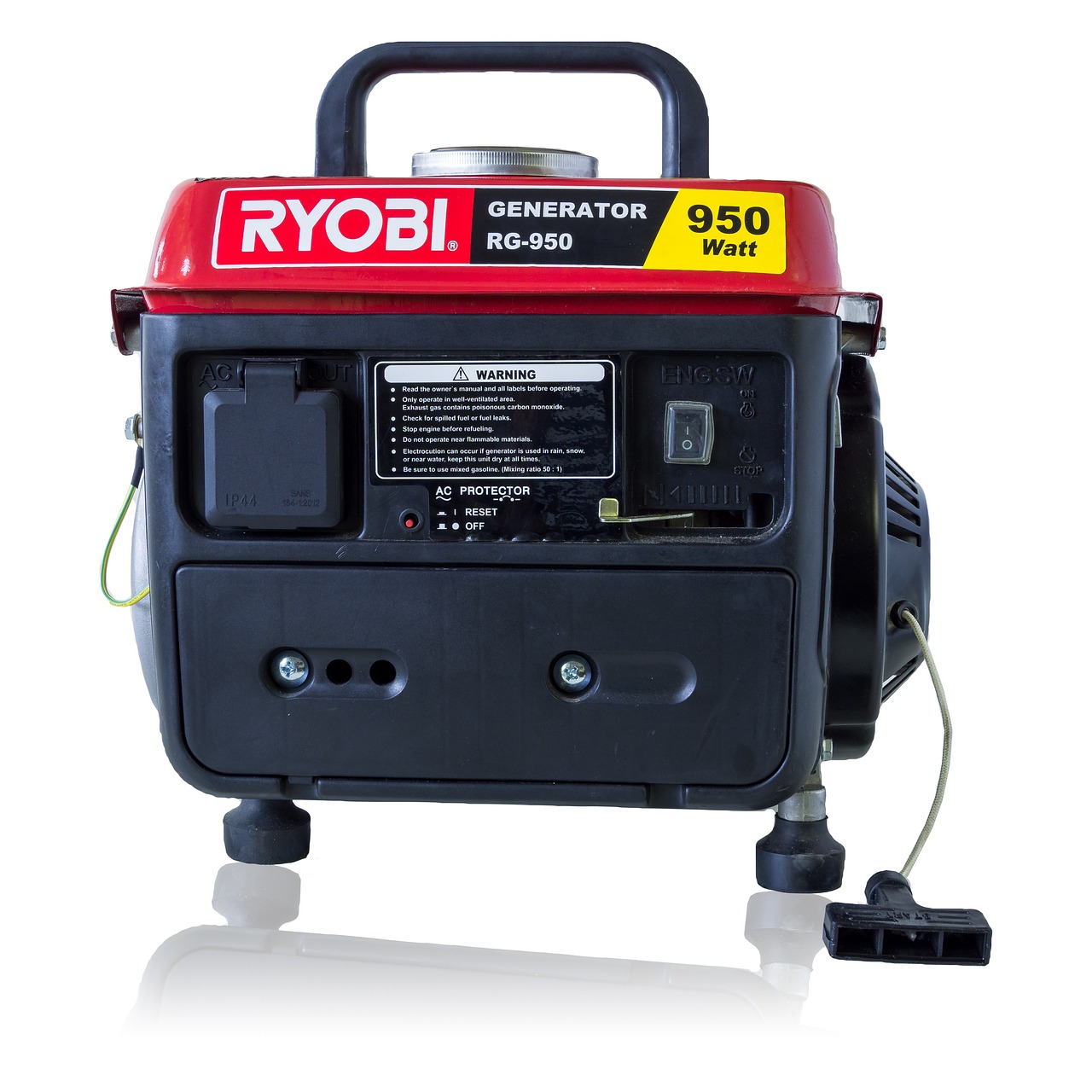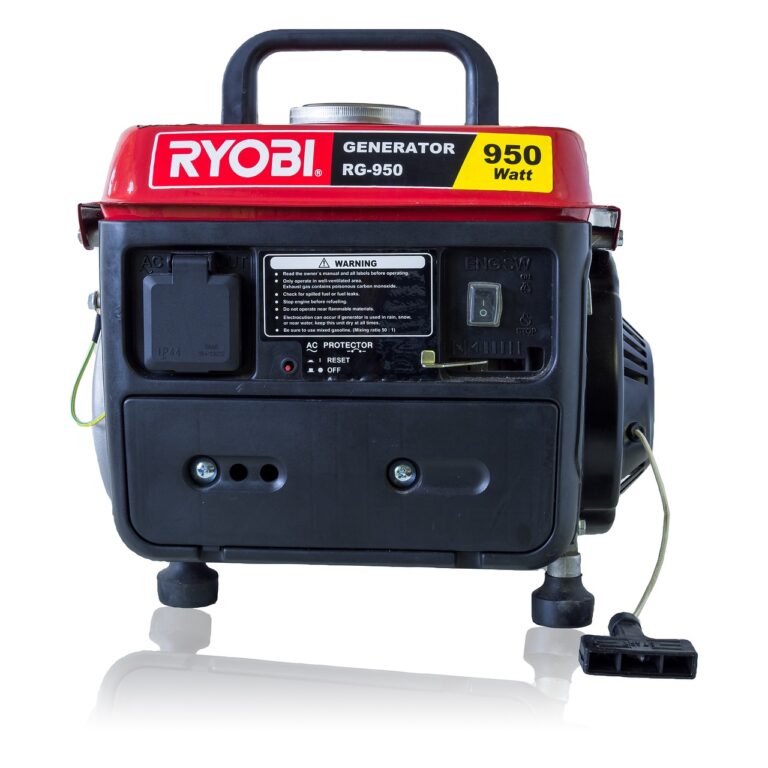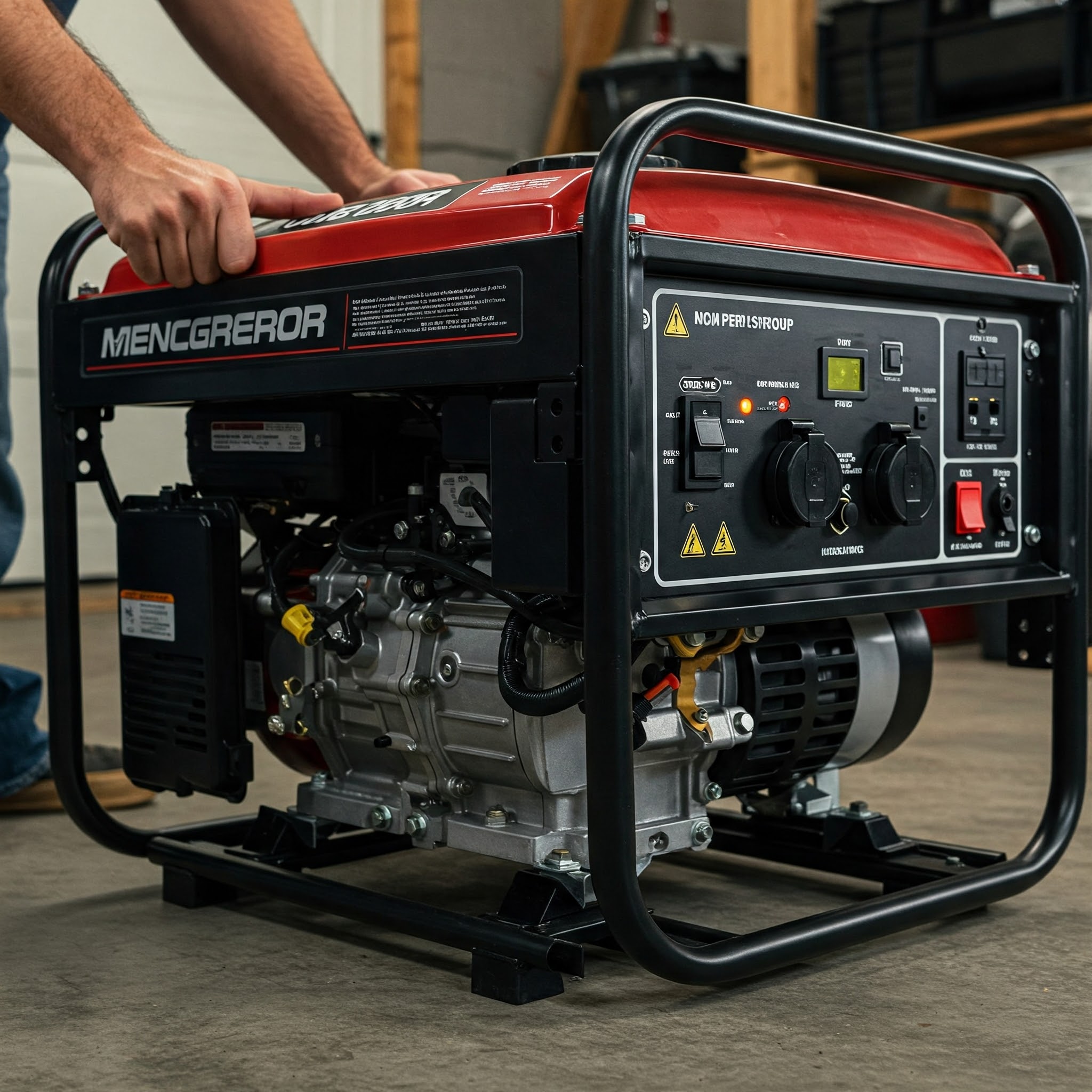Fueling Your Portable Generator: A Guide to Choosing the Right Fuel for Efficiency and Performance.
As an owner of a portable generator, I know how important it is to choose the right fuel for efficiency and performance.
In this guide, I’ll help you understand the different types of fuel available and the factors to consider when making your choice.
We’ll explore the advantages and disadvantages of gasoline, propane, and diesel, and I’ll provide examples of suitable generators for each fuel type.
By the end, you’ll have the knowledge to fuel your portable generator effectively.
Key Takeaways
- Gasoline, propane, and diesel are the most common fuel options for portable generators.
- Factors to consider when choosing a fuel include availability, cost, and environmental impact.
- Gasoline is popular and readily available, propane is cleaner burning and has a longer shelf life, and diesel is reliable and fuel-efficient.
- Different generators are suitable for different fuels depending on their intended use, such as home use, outdoor use, or industrial/commercial use.
Factors to Consider: Availability and Cost of Fuel
Availability and cost are two important factors to consider when choosing the right fuel for your portable generator. It’s crucial to assess the availability of the fuel in your area to ensure that you can easily access it when needed. Gasoline is typically the most inexpensive option, while propane and diesel can be more expensive.
When comparing different fuel types, it’s essential to consider their fuel efficiency and storage requirements. Some fuels, like propane and diesel, have longer shelf lives compared to gasoline, making them more convenient for storage.
Environmental Impact: Choosing Cleaner-Burning Fuels
When it comes to choosing cleaner-burning fuels for my portable generator, I need to consider the environmental impact. It’s important to prioritize sustainability and reduce carbon emissions in order to minimize harm to the planet.
Here are three reasons why choosing renewable fuel options and implementing carbon emissions reduction strategies is crucial:
- Protecting the Environment: Opting for cleaner-burning fuels helps to preserve the air quality and reduce pollution, leading to a healthier environment for ourselves and future generations.
- Combatting Climate Change: By using renewable fuel options, we can significantly decrease greenhouse gas emissions, which play a major role in global warming and climate change.
- Promoting Sustainable Practices: Choosing cleaner-burning fuels encourages the development and adoption of renewable energy technologies, promoting a more sustainable and greener future.
Gasoline: The Popular Choice for Portable Generators
I find gasoline to be the popular choice for my portable generator due to its widespread availability and affordability.
When comparing gasoline to propane in terms of fuel efficiency, gasoline tends to provide better performance. Gasoline is known for its high energy density, which means it can produce more power per unit of volume compared to propane.
However, it’s important to consider long-term storage options for gasoline and propane. Gasoline has a relatively short shelf life and can degrade over time, so it’s crucial to use fuel stabilizers and ensure proper storage conditions.
On the other hand, propane has a longer shelf life and can be stored in sealed tanks, making it a more convenient option for long-term storage.
Propane: A Cleaner-Burning Alternative to Gasoline
Typically, I frequently choose propane as a cleaner-burning alternative to gasoline for my portable generator. Propane has several benefits over other fuel options, making it an excellent choice for powering my generator. Here are the reasons why I prefer propane:
- Cleaner Burning: Propane produces fewer harmful emissions compared to gasoline, resulting in cleaner air and a reduced environmental impact. It’s a responsible choice for those who prioritize sustainability.
- Longer Shelf Life: Unlike gasoline, propane has a longer shelf life, meaning I can store it for longer periods without worrying about the fuel degrading. This convenience allows me to be prepared for emergencies or extended power outages.
- Versatility: Propane can be easily transported and stored in portable tanks, making it convenient for outdoor use. It’s also worth mentioning that propane is a safer option compared to natural gas, as it doesn’t require a dedicated pipeline connection.
Diesel: Ideal for Industrial or Commercial Use
And diesel is my preferred choice for industrial or commercial use because it offers reliability and fuel efficiency.
When it comes to powering generators for these applications, diesel fuel efficiency plays a crucial role. Diesel engines are designed to be more fuel-efficient than gasoline engines, allowing them to produce more power with less fuel consumption. This is particularly beneficial for industrial or commercial settings where power demands are usually higher.
Additionally, diesel fuel has a longer shelf life than gasoline, making it a more suitable option for long-term storage. While propane has its advantages, such as being cleaner-burning and having a longer shelf life, diesel remains the top choice for those needing a reliable and efficient power source in industrial or commercial environments.
| Fuel Type | Availability | Cost | Environmental Impact | Suitable Generator |
|---|---|---|---|---|
| Gasoline | Readily available | Inexpensive | Not as clean burning | WEN 56200i |
| Propane | Not as widely available | More expensive | Cleaner burning | Coleman Powermate PM0435005 |
| Diesel | Not as widely available | More expensive | Cleaner burning | Generac 70422 Home Standby Generator |
Suitable Generators for Different Fuel Types
When considering suitable generators for different fuel types, it’s important to take into account their specific requirements and capabilities.
Here are some examples of generators that are well-suited for different fuel types, along with their pros and cons in terms of fuel efficiency and maintenance:
- Gasoline generator: The WEN 56200i is an affordable option that’s easy to find gasoline for. It’s also fuel-efficient, making it a cost-effective choice. However, gasoline has a short shelf life and can degrade over time, requiring more frequent maintenance.
- Propane generator: The Coleman Powermate PM0435005 runs on cleaner-burning fuel with a longer shelf life. It’s also compact and lightweight, making it ideal for outdoor use. However, propane isn’t as readily available as gasoline and generally more expensive.
- Diesel generator: The Generac 70422 Home Standby Generator is a reliable option that’s more fuel-efficient than gasoline. It’s popular for industrial or commercial use. However, diesel fuel is more expensive than gasoline and not as widely available.
Considering these pros and cons, along with factors such as availability, cost, and environmental impact, will help you choose the right fuel and generator for your needs.
Safety Considerations When Fueling Your Portable Generator
As an owner of a portable generator, it’s important to prioritize safety and follow these guidelines for fueling.
When it comes to fuel storage and maintenance, it’s crucial to store fuel in approved containers that are specifically designed for flammable liquids. These containers should be kept in a well-ventilated area away from any potential ignition sources. Additionally, it’s important to regularly inspect fuel lines for any signs of damage or leaks.
Proper fueling techniques and precautions are also essential for safety. Always turn off the generator before refueling and allow it to cool down for a few minutes. This helps to prevent any potential fuel spills or accidents. When refueling, use a funnel to pour the fuel into the tank slowly and avoid overfilling. It’s also important to avoid smoking or using open flames near the generator or fuel storage area.
Following these fueling guidelines will help ensure the safe operation of your portable generator.
Conclusion
In conclusion, choosing the right fuel for your portable generator is crucial for its efficiency and performance. Factors such as availability, cost, and environmental impact should be considered when making your decision.
Gasoline is a popular choice, propane offers cleaner-burning options, and diesel is ideal for industrial use. By understanding these options and matching the right generator to your fuel choice, you can fuel your portable generator effectively and confidently.
Stay safe when fueling your generator and enjoy the benefits of a well-fueled machine.



